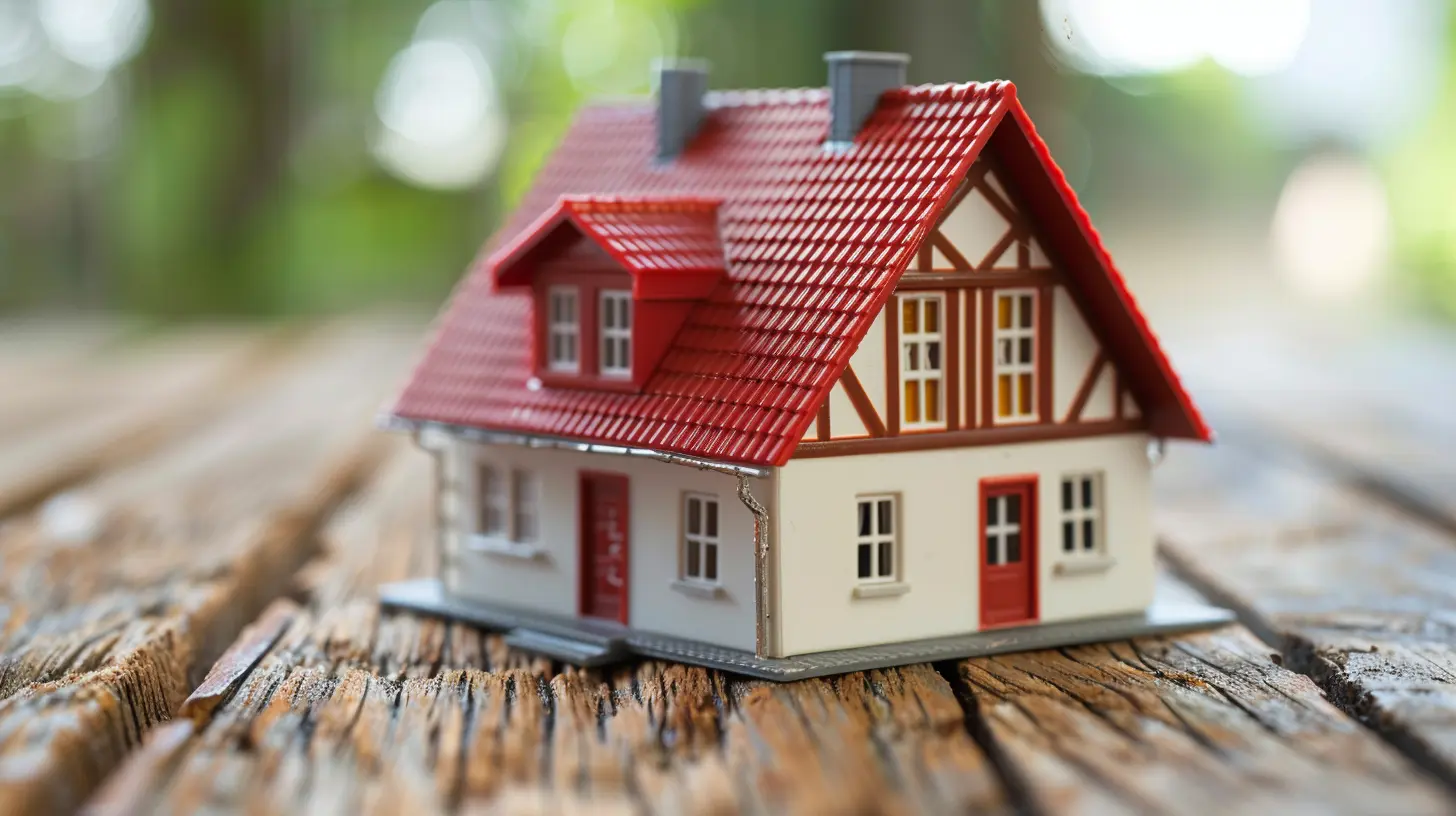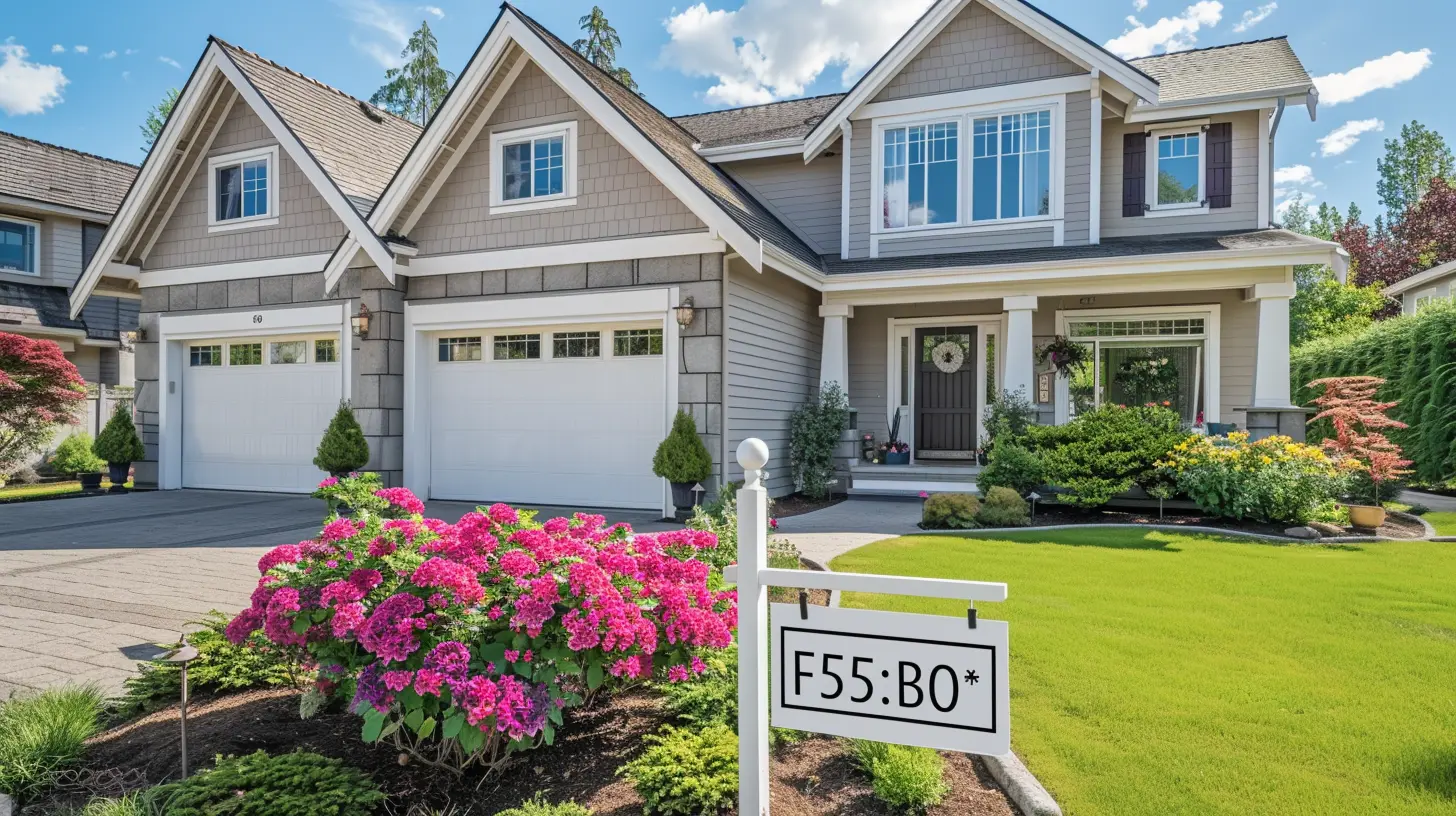Understanding Your Local Market as a FSBO Seller
11 July 2025
Selling your home on your own—also known as "For Sale By Owner" (FSBO)—can be an exciting and financially rewarding experience. But let’s be honest, it can also feel overwhelming. Without the expertise of a real estate agent, you’re responsible for setting the right price, marketing your home, and negotiating with buyers. One of the most critical steps in this journey is understanding your local housing market.
Knowing the ins and outs of your area’s market conditions will help you sell faster and maximize your profits. But how do you do that without a Realtor guiding the way? Don’t worry—I’ve got you covered. Let’s break it down step by step. 
Why Understanding Your Local Market Matters
Selling a home isn't just about putting up a “For Sale” sign and waiting for offers to roll in. If you don’t have a solid grasp of what’s happening in your local market, you might either overprice or underprice your home—both of which can cost you in the long run.- Overpricing: If your home is priced too high, buyers may overlook it, and it could sit on the market for too long.
- Underpricing: If you price it too low, you might attract quick offers, but you could end up leaving money on the table.
Understanding your area’s market dynamics helps you make informed decisions that lead to a successful sale. 
Researching Market Trends
So, how do you actually get to know your local market? It comes down to research and observation. Here are some of the most effective ways to gather valuable insights:1. Check Local Home Sales Data
Look at recently sold homes in your neighborhood—especially those similar to yours in size, condition, and amenities. You can find this information on real estate websites like:- Zillow
- Redfin
- Realtor.com
- Your local county property appraiser’s website
Pay attention to:
- Sale Price: What are homes selling for?
- Days on Market (DOM): How quickly are homes being sold?
- Price Trends: Are prices going up or down over the past few months?
2. Analyze Active Listings
It’s not just about recently sold homes—you also need to check out your competition. Look at other FSBO and agent-listed homes in your area.- What’s their asking price?
- How are they marketing their home?
- Do they offer incentives like closing cost assistance?
By studying these listings, you can position your home at the right price and make it stand out.
3. Understand the Seasonality of Your Market
The real estate market has ups and downs throughout the year. In most areas, spring and summer are peak selling seasons since families prefer to move before the new school year. On the flip side, winter months can be slower due to holidays and colder weather.If you’re selling during a slower season, you may need to adjust your pricing or offer incentives to attract buyers.
4. Pay Attention to Interest Rates & Economic Conditions
Mortgage interest rates and the overall economy play a huge role in buyer demand. When interest rates are low, more buyers enter the market because borrowing money is cheaper. When rates rise, affordability declines, and buyers become more cautious.Tuning into economic trends can help you understand when buyers will have the most purchasing power. 
Pricing Your Home Correctly
Now that you have a good understanding of the market, it’s time to set the right price. Pricing your home correctly from the start can make a huge difference in how quickly it sells.How to Determine the Right Price
- Compare Similar Homes (Comps): Find recent sales of comparable homes in your neighborhood.- Adjust for Features: If your home has upgrades (like a remodeled kitchen), you can price slightly higher than a similar but less upgraded home.
- Consider Market Conditions: If it’s a sellers’ market (more buyers than available homes), you can price more aggressively. If it’s a buyers’ market (more homes than buyers), you may need to be more competitive.
A common mistake FSBO sellers make is pricing based on what they want rather than what the market supports. Emotion shouldn’t drive your pricing—data should. 
Marketing Your FSBO Home Based on the Market
Once you've got the right price, marketing your home effectively is key. Since you don’t have an agent's network, you need to leverage the right platforms and strategies to reach buyers.1. List on FSBO Websites & MLS
You can list your property on several FSBO-friendly websites like:- Zillow FSBO
- ForSaleByOwner.com
- Craigslist
- Facebook Marketplace
But if you want to reach more buyers, consider paying a flat fee to get your home listed on the Multiple Listing Service (MLS). This gives your listing exposure to agents and buyers searching for homes.
2. Use Professional Photos & Videos
First impressions matter! High-quality photos can make a huge difference in attracting buyers. If you have the budget, hiring a professional photographer is worth it.You may also want to create a virtual tour or video walkthrough to give buyers a real feel for your home.
3. Write a Compelling Listing Description
Your listing description should highlight what makes your home special. Instead of just listing features, tell a story that helps buyers visualize living there.For example:
❌ “3 bed, 2 bath home with a large yard.”
✅ “This charming 3-bedroom, 2-bath home offers cozy evenings by the fireplace and sunny mornings in a spacious backyard perfect for summer barbecues!”
It’s all about emotion—help buyers fall in love with your home before they even step inside.
4. Share on Social Media & Local Groups
Gone are the days when you only needed a yard sign. Now, social media is a powerful tool to market your home.- Post your listing on Facebook, Instagram, and Nextdoor
- Share in local community or real estate groups
- Ask friends and family to spread the word
The more eyes on your listing, the better!
Negotiating & Closing the Sale
Once buyers start showing interest, you’ll need to negotiate offers and manage the closing process.1. Be Ready to Negotiate
Most buyers will try to negotiate—so be prepared to counteroffer. Consider what concessions you’re willing to offer, like:- Covering a portion of closing costs
- Offering home warranties
- Being flexible on move-in dates
2. Understand the Legal Side
Selling a home involves contracts, disclosures, and legal requirements. It’s a good idea to consult a real estate attorney to ensure all paperwork is correctly handled, avoiding costly mistakes.3. Plan for the Closing Process
Once you accept an offer, the buyer will likely schedule a home inspection and appraisal. Be prepared for potential renegotiations if repairs are needed.Work with a title company or escrow agent to handle the final paperwork and ensure a smooth closing.
Conclusion
Selling your home FSBO can be a rewarding journey, but it requires knowledge, strategy, and attention to detail. Understanding your local market is the foundation of a successful sale—helping you set the right price, attract buyers, and negotiate confidently.By doing your homework, using the right marketing strategies, and staying flexible, you can navigate the process like a pro—without paying hefty agent commissions.
If you’re thinking about selling FSBO, take the time to research and plan. Your dream buyer is out there—now go find them!
all images in this post were generated using AI tools
Category:
For Sale By OwnerAuthor:

Cynthia Wilkins
Discussion
rate this article
1 comments
Rose Palmer
Great insights on navigating the local market as a FSBO seller! Understanding local trends and buyer preferences is crucial. Your tips will surely help many homeowners make informed decisions. Thank you for sharing this valuable information!
July 13, 2025 at 4:57 AM

Cynthia Wilkins
Thank you for your kind words! I'm glad you found the insights helpful. Understanding the local market is key for FSBO sellers!


